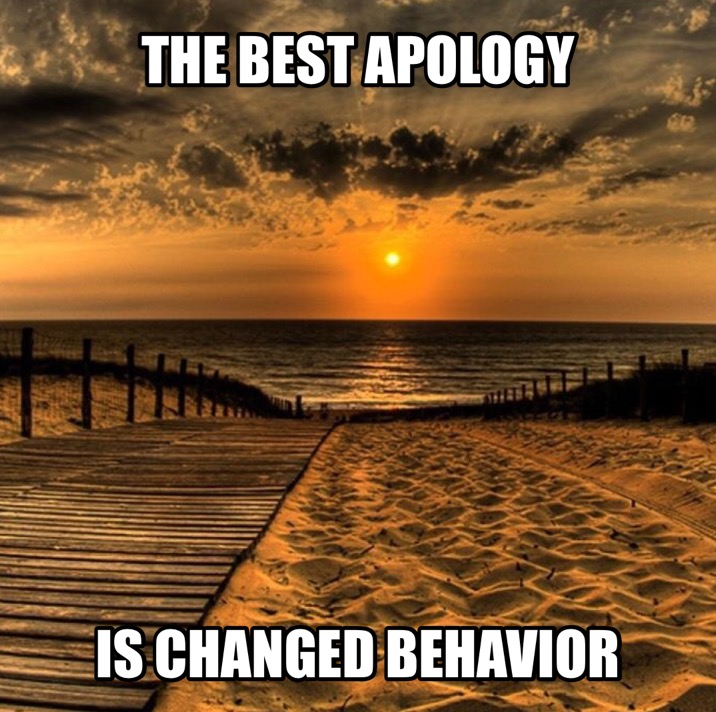What do you think about this statement? Does an apology have any value if it isn’t accompanied by changed behavior? It’s important to know the difference between saying the words “i’m sorry” and making amends. What is making amends? Well, I’m glad you asked. Making amends is defined as “to alter, modify, rephrase, or add to or subtract from (a motion, bill, constitution, etc.) by formal procedure: Congress may amend the proposed tax bill. 2. to change for the better; improve: to amend one’s ways.” and also “compensation for a loss or injury : recompense” Making amends involves far more than the apology itself. Instead, we start with the apology followed by several steps:
- Explain to the person you’ve wronged why you’re sorry and in what specific ways it must have hurt them. Ask how your actions hurt them and demonstrate empathy for their position and what they must be going through.
- Explain that your intention is to avoid ever harming them in this way again by avoiding the behavior that upset them. Explain your specific plan to choose a different behavior next time thereby demonstrating a proactive approach.
- Discuss reparations and devise a plan to institute them. Reparations are the making of amends for a wrong one has done, by helping those who have been wronged. Determine what you can do to help the person you have wronged.
All of the above mentioned steps demonstrate ACTION and the beginnings of changed behavior. Sound good? I think we would all like to be on the receiving end of such an apology. Let’s try to model these steps in our own lives and request that we are on the receiving end as well.
For more great life quotes, please join us on Facebook at Aspira Continuing Education Facebook Page
For information on mental health, social work, and relationship topics, please visit LCSW Continuing Education

